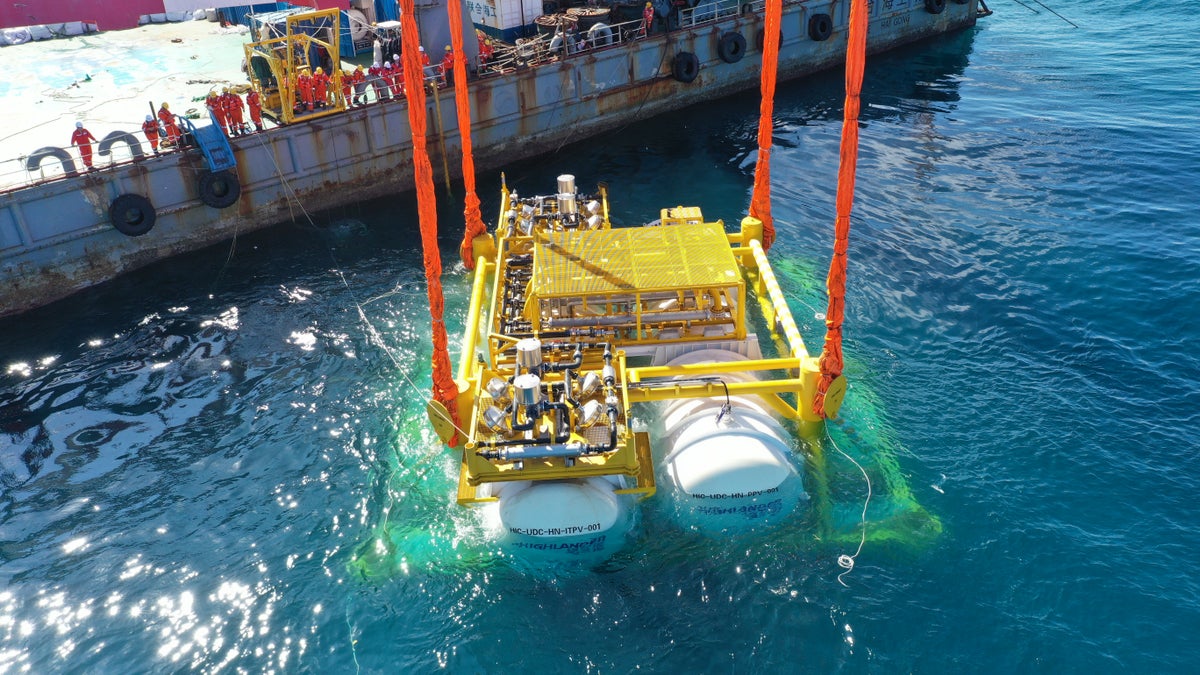MS servers are undersee since time, nothing new
https://news.microsoft.com/source/features/sustainability/project-natick-underwater-datacenter/
In 2024, they cancelled it.
I think that they will return to it, due to the growing need, also because of the growing use of LLM everywhere, which is a big energy problem and costs only for the cooling. The chinese saw it that the best manner is to use submarine servers, which no need energy for the cooling, saving a lot of money. The energy need of cooling large data centers are a lot of MW + of what the need is from the servers. The only other alternative are datacenters in polar regions, done already by nordic countries. The drawback of submarine servers is the accessibility, but with the saved money in energy it’s a minor problem. Independent of political opinions, western countries can learn a lot of chinese, we look to much on lobby interests of big corporations, which often break down the developement of new tecnologies.
thats not exactly a novel approach.
Why put them in the ocean when you can just put them on the coast and pipe ocean water through the heat exchanger? That way you can actually access the servers without a ship with a giant crane (powered by fossil fuels) hauling them back up.
Also gonna guess the maintenance intervals are atrocious with all the salt corrosion. Why not a river or lake where the water doesn’t actively hate the thought of metals existing and you don’t have microscopic creatures that will attach to literally any surface and create a calcified dome for itself plugging up the places water is supposed to flow through?
I was baffled by the Microsoft “sea cooled datacenter” and I’m still baffled now. Like surely there are better ways to do it.
I’m guessing they did a cost benefit analysis of all this before starting the project. :)
It’d be neat if data centers could also be desalination plants. IE, you extract the seawater, desalinate it, use it for cooling, then add the fresh water into the general water supply when it’s done with. I’m sure there are probably many reasons why that wouldn’t work though.
Why not just build all the datacenters in the arctic? What am I missing?
Condensation
I mean.
Dehumidifiers? I’m not a scientist tho.
Distance china-arctic (far) > distance china-ocean (0)
Also the arctic isn’t that cold for most of the year anymore.
I mean, the arctic had summers even before the whole climate thing, now they’re on track to being all summer all the time.
I meant generally. But they e got Mongolia don’t they? Or Tibet?
Honestly datacenters almost always benifit from being data sources, which mostly means population centers.
There is almost the cost of networking even if latency isnt a concern. There is just more line of sight with sats and fiber connection near existing places vs far off places.
because the oceans can’t warm fast enough.
More energy being spent cooling data centers on land ultimately heats up the whole system more, including the oceans. This is why you should pay attention in your physics class at school kids.
The project is set to use 30% less electricity and is powered by wind. Better than the Western approach of building data centers in deserts to waste scarce water for cooling for sure
This is only a problem if the datacenters are not powered by renewables. Nearly all renewables are the result of solar energy, AKA photons, AKA heat that is hitting the Earth regardless of what we do with it. Solar panels are obvious, but even for wind, it’s the result of the sun heating different regions of the atmosphere at different rates, converting thermal energy from the sun to kinetic energy in the air. A wind turbine converts some of this kinetic energy to electrical energy (which slows the air down ever so slightly), which is dissipated as heat mostly in the data center. The thing is, if the wind turbine didn’t exist, whatever kinetic energy that would have been captured would directly be dissipated as heat anyway in the form of friction in the air. Renewables only move solar heat around, and doesn’t generate heat of its own. Even with geothermal energy, where in theory you’re bringing heat that was trapped in the Earth to the surface, the geothermal sources we can practically take advantage of are already so close to the surface they would have been released through simple conduction anyway.
It is only when you burn fossil fuels that you’re actively generating heat that would otherwise have stayed as chemical energy. But even the heat from this not the actual concern, it’s the byproducts it generates that cause solar energy that would have been released into space to be trapped in the atmosphere. The heat generated isn’t even a rounding error compared to retaining even 1% more solar energy in the air. Same for nuclear where you’re reducing the overall binding energy inside atom cores and the reduction in energy is equal to the heat generated.
The heat of even huge datacenters in the ocean is irrelevant, compared to the caused by the energy generation needed for cooling datacenters on land. Energy needed for cooling in submarine servers is zero.
I am far from expert on this, but I’m not sure that they will be sufficient to change the oceanic temps compared to the wider worldwide greenhouse effect. Every data centre is already adding heat and most are reliant upon fossil fuels. The AI operations excessively so. Definitely need to do the works of a job on climate change.








